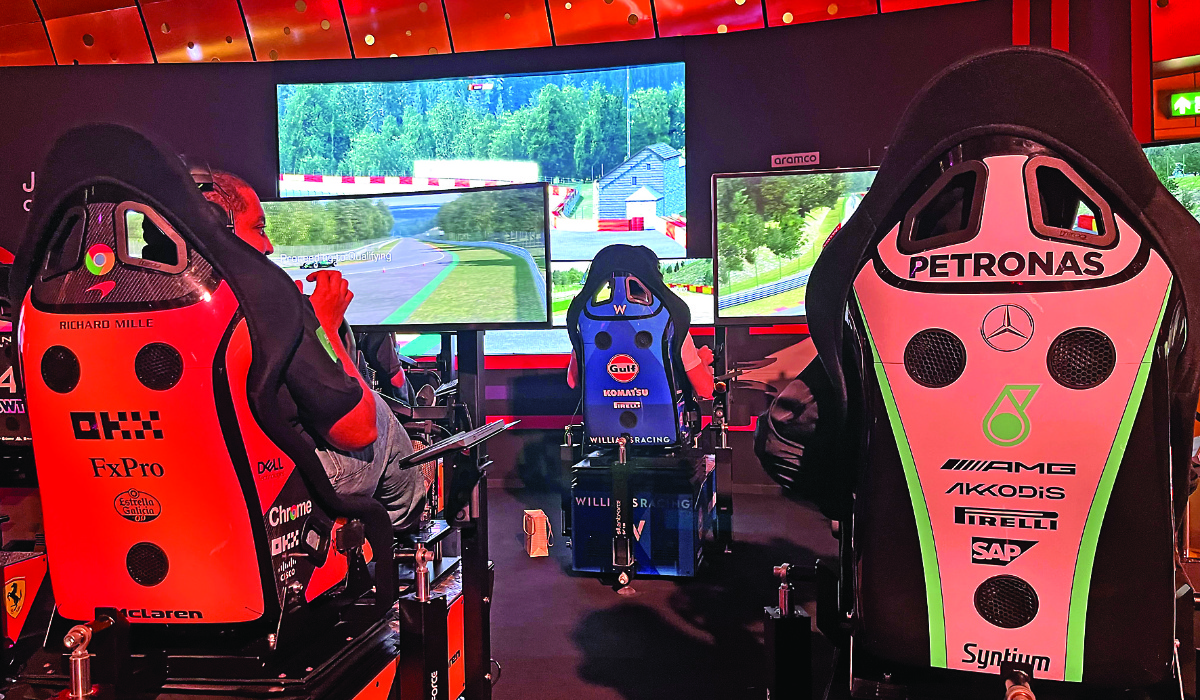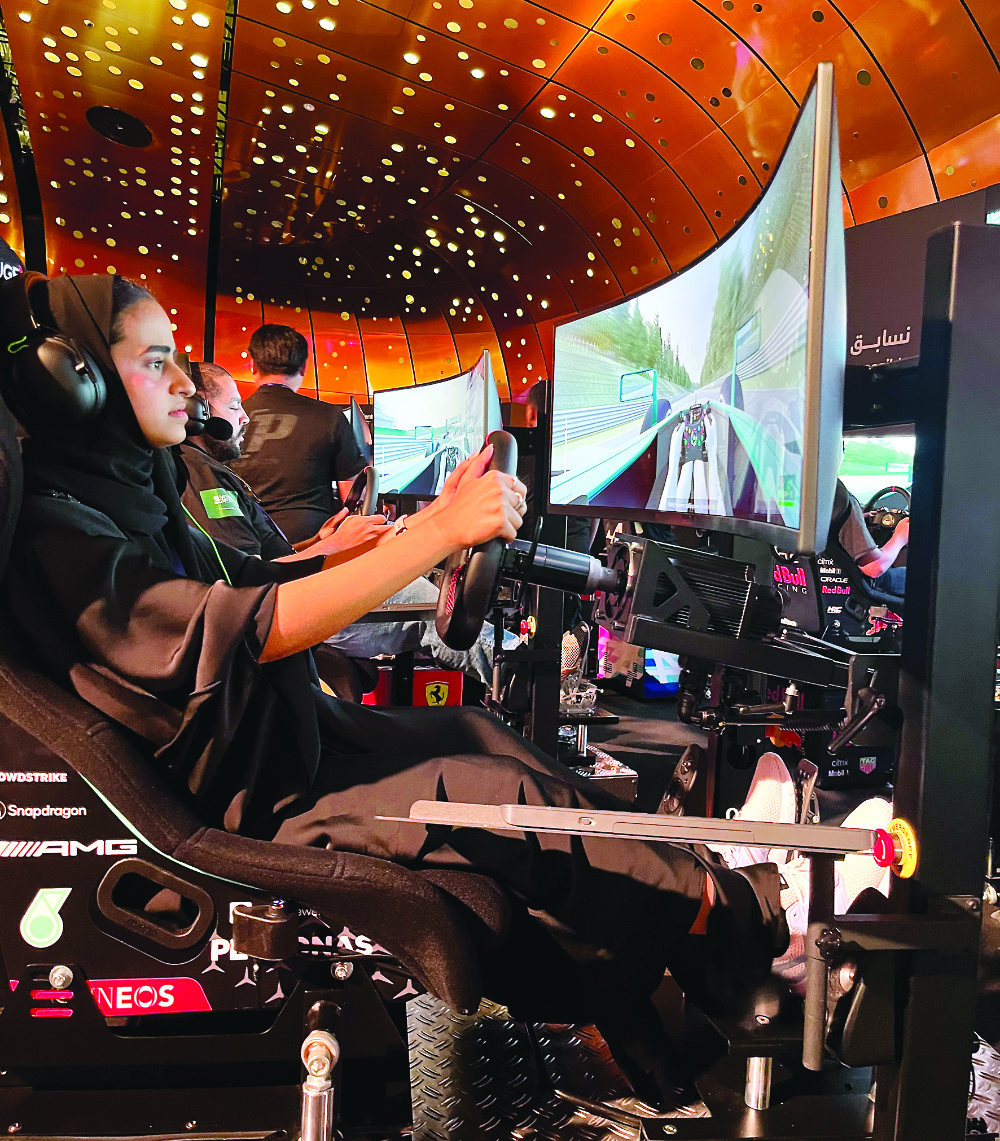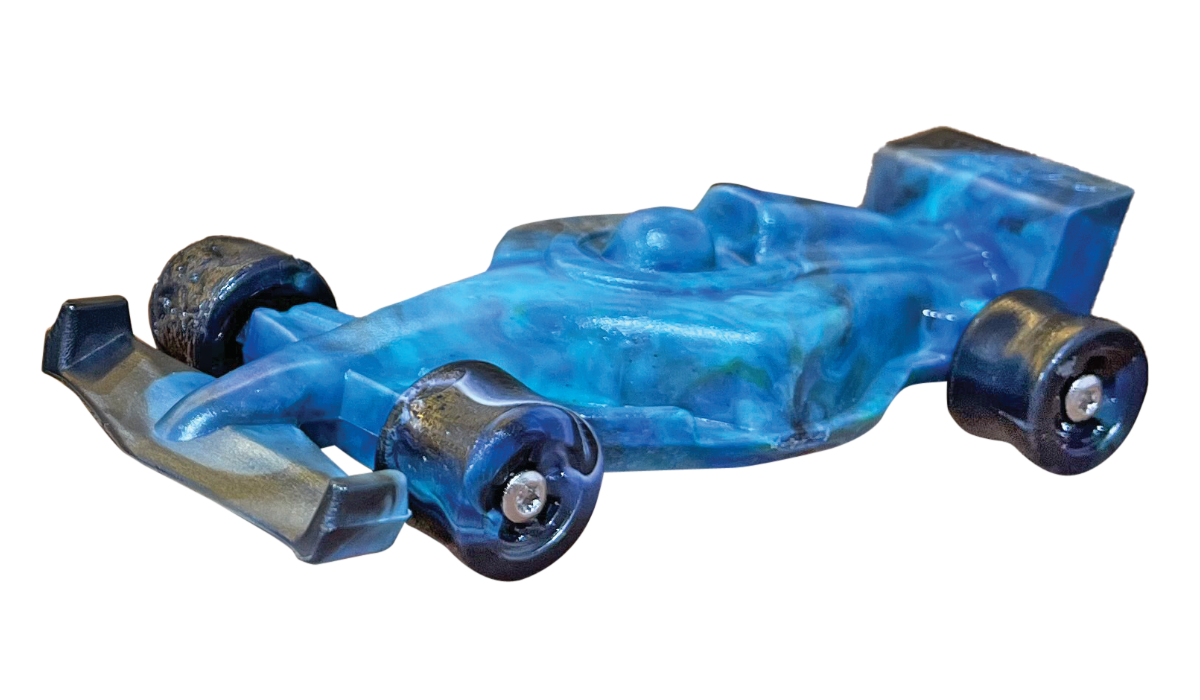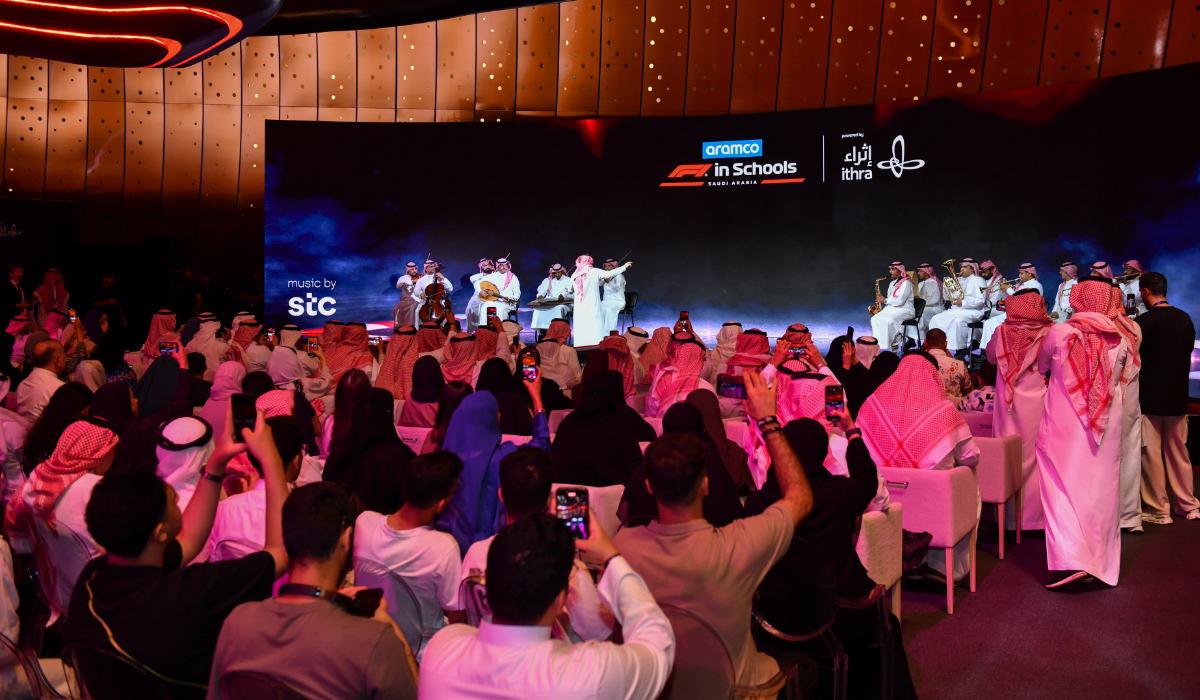DHAHRAN: Dhahran was the big winner in the Saudi segment of the F1 in Schools National Championships powered by Aramco, with teams claiming first and fourth places in the competition held at the King Abdulaziz Center for World Culture, or Ithra, at the weekend.
The 2024 national champion title went to Dhahran’s Shaheen, second place to Al-Ahsa’s Venture, third to Riyadh’s Clad, and fourth — an additional award added for the first time — to Dhahran’s Oryx.

Ithra’s Great hall was transformed into an immersive hub on Saturday, with the focus on Formula 1 continuing until July 13. (AN photos)
Winners will represent Saudi Arabia in a global competition due to take place in the Kingdom later this year.
The F1 in Schools competition is a globally recognized educational program that challenges students to design, build, and race miniature F1 cars. This year’s theme was “Overtake the Impossible.”
Maha Abdulhadi, head of F1 in Schools at Ithra, said in a statement: “With a shared commitment to serving as an incubator of education and youth empowerment, Ithra and F1 in Schools offer young people the knowledge and experiential spaces to develop their ambition and skills to create a bright future for themselves and their country.
HIGHLIGHTS
• The F1 in Schools competition is a globally recognized educational program that challenges students to design, build, and race miniature F1 cars.
• Participating students, aged 15-16, were expected to use a STEAM-based (science, technology, engineering, art and math) learning program.
“We are excited to host these promising young students, their families and visitors from across the country as the competition shifts gears.”

Ithra’s Great hall was transformed into an immersive hub on Saturday, with the focus on Formula 1 continuing until July 13. (AN photos)
Ithra’s Great Hall was transformed into an immersive hub on Saturday, with the focus on Formula 1 continuing until July 13.
Eight simulators will allow those over the age of 15 to test drive an F1 vehicle in real time. A VR experience also offers visitors an authentic taste of high-speed action.
On Saturday, students cheered when they saw their faces appear on screen during a “Day in the Life of F1 in Schools” video segment.

Ithra’s Great hall was transformed into an immersive hub on Saturday, with the focus on Formula 1 continuing until July 13. (AN photos)
The ceremony also celebrated trainers and judges who had flown in from around the world, as well as local judges.
Students from different schools worked in groups for the past six months, developing prototypes under the supervision of 38 professionals.
Participating students, all 15 or 16 years of age, were expected to use a STEAM-based (science, technology, engineering, art and math) learning program, which combines both hard and soft skills.

Ithra’s Great hall was transformed into an immersive hub on Saturday, with the focus on Formula 1 continuing until July 13. (Photo/Yasir Alqunais)
Students were able to explore topics ranging from physics and aerodynamics to design, manufacturing, branding and graphics. They were also taught marketing and leadership skills, how to use social media effectively, and how to create a financial strategy.
This year, 120 students were split into 20 teams, with each team working out of a local hub. The cities of Dhahran, Al-Ahsa, Riyadh, Jeddah and Madinah returned this year, while Abha was added for the first time.
To demonstrate Ithra’s commitment to local culture, folk dancers from each of the six represented cities performed together on stage, while images of students working on their F1 projects were displayed in the background.

Ithra’s Great hall was transformed into an immersive hub on Saturday, with the focus on Formula 1 continuing until July 13. (Photo/Yasir Alqunais)
Ithra first partnered with F1 in Schools in 2021, and has been running the national level competition in Saudi Arabia, spearheading the launch of several learning hubs across the Kingdom to facilitate the training and development of students as part of the F1 challenge.
In 2023, Ithra hosted the country’s first F1 in Schools national finals, with 16 teams competing.
Andrew Denford, the founder and chairman of F1 in Schools, noted at the time that girls made up 68 percent of the participating students. Three of the teams went on to represent Saudi Arabia at that year’s world finals in Singapore, with the Oryx team from Dhahran winning the Innovative Thinking Award.

The King Abdulaziz Center for World Culture. (Photo/Yasir Alqunais)
A large percentage of girls also took part in the competition this year, competing for 12 awards in categories ranging from fastest car and verbal presentation to sustainability.
In continuing with Ithra’s promotion of recycling, workshops created molds of cars by melting plastic bottle caps in a designated lab. Molds made specifically for F1 in Schools will be available all week.
Under the library’s escalator, a car made of 90 percent recycled or repurposed components, including 5,000 water bottles, steel and acrylic sheets, was placed on display. At least 12 people took about 1,500 hours to create the 120 kg vehicle.
The 10-day series of events will include interactive activities, as well as a paper car-making workshop, mixed reality pit garage, car Lego station, and talks with F1 experts.
Speaking at the award ceremony, David Howes, director of communication and events for F1 in Schools, said: “Having worked for F1 Esports since 2004, I’ve witnessed our global community grow from four countries to 62 today, and it really is an honor to be here in Saudi Arabia, not only to witness a national title, but to witness a world-class event, and most importantly, to see world-class teams competing.”
The fourth Formula 1 in Schools is now open for applicants. Students who qualify can apply via the Ithra website, where a full schedule of this week’s activities is also on view.































